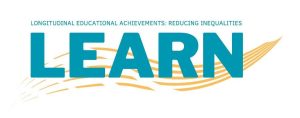Tallinn University (TLU) is a public institution of higher education and the third-largest university in Estonia, with approximately 7,000 students—8% of whom are international—and around 900 employees, including 500 full-time academic staff. TLU’s primary strengths lie in the social sciences and humanities, complemented by a growing presence in the natural and exact sciences. The university also has a strong tradition in teacher training and educational research.
Applied research and collaboration with businesses are expanding rapidly in areas such as fine arts, educational technology, health, and social sciences. Tallinn University’s mission is to promote the sustainable development of Estonia through high-quality research, education, and creative activity, as well as through public engagement, entrepreneurship, cooperation with the public and third sectors, and the advancement of academic partnerships.
TLU’s academic work is organized around five strategic focus areas: educational innovation, digital and media culture, cultural competences, healthy and sustainable lifestyles, and society and open governance. Since September 1, 2015, each of these focus areas has been represented by its own School, with a sixth School providing cross-cutting support through digital technologies and data analytics.
The Institute of International Social Studies (IISS), founded in 1989, is a dynamic research and development centre within the School of Governance, Law and Society at Tallinn University
IISS focuses on life course research with a strong comparative perspective, exploring how social inequalities evolve over time. Our research covers key dimensions of social stratification, such as education, social status, gender, age, nationality, and generational change.
With extensive experience in coordinating national and international research projects, the IISS team contributes cutting-edge theoretical and empirical knowledge to the social sciences. A central theme is the cumulative impact of inequalities across individual life courses, shaped by institutional settings, structural conditions, and public policies.
Beyond research, IISS plays an active role in policy development, offering expert advice on social and economic issues to national decision-makers. We are especially recognized for our contributions to understanding social change in Estonia since the restoration of independence.
Main research areas:
01
Life Course and Transitions
Comparative studies of youth transitions to adulthood and exit from the labor market, focusing on timing, sequencing, and longterm consequences.
02
Education and Training Systems
Educational inequalities, lifelong learning.
03
Social Stratification Across the Life Course
Analysis of how inequalities in
education, employment, and well-being accumulate over time and shape individual life trajectories.
04
Inequalities by Gender, Ethnicity, and Age
Study of how structural inequalities emerge and persist in education and labor markets, intersecting with gender, ethnic background, and age.
05
Parenthood, Work, and Well-being
Research on how parenthood influences career paths, labor market inequality, and individual well-being across different life stages.
Researchers:
Marge Unt
Research Professor of Comparative Sociology
Main contact
Meril Ümarik
Associate Professor of Educational Research
Eve-Liis Roosmaa
Lecturer, Researcher
Epp Reiska
Research Assistant


